|
|
|
Climate scenarios: a Florida-centric view
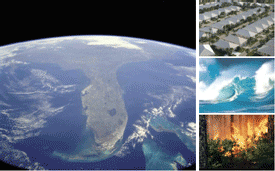 A new white paper comprises the viewpoints of experts in Florida from diverse fields on climate scenarios of the future with a focus on potential impacts on the state of Florida. COAPS assistant professor Dr. Vasu Misra is the principal author and Dr. Mark Powell, a NOAA scientist stationed at COAPS, is a contributing author. Download the report (PDF) A new white paper comprises the viewpoints of experts in Florida from diverse fields on climate scenarios of the future with a focus on potential impacts on the state of Florida. COAPS assistant professor Dr. Vasu Misra is the principal author and Dr. Mark Powell, a NOAA scientist stationed at COAPS, is a contributing author. Download the report (PDF). |
|
COAPS Atlantic hurricane season forecast proves accurate again
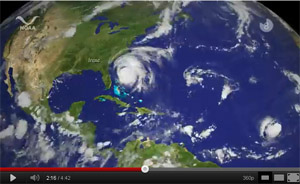 | | NOAA video: The 2011 Hurricane Season in 4.5 minutes. |
The 2011 Atlantic hurricane season ended November 30, and the COAPS Atlantic hurricane season forecast has proven accurate once again. The forecast COAPS released on June 1 called for a 70 percent probability of 14 to 20 named storms and 7 to 11 hurricanes. The mean forecast was for 17 named storms, 9 hurricanes, and an accumulated cyclone energy (ACE; a measure of the strength and duration of storms) of 162. The actual observed number of tropical storms in the Atlantic during the 2011 season was 19, 18 of which were named, and 7 of which were hurricanes. The ACE was 123. This is the 3rd year in a row that COAPS scientists have released a forecast, and the past 2 forecasts were successful as well. The forecast was developed by Drs. Tim LaRow, Lydia Stefanova, DW Shin, and Steve Cocke. |
|
Winter agricultural outlook
La Niņa is here again! The latest outlook from the Southeast Climat Consortium is now available. The outlooks includes an overview of La Niņa and its potential impacts on crops in the southeast US. |
|
Meteorological data acquisition resumes in northern Gulf
 On October 27 2011, COAPS and FSU oceanography scientists redeployed meteorological instrumentation on Air Force tower N7 in the northern Gulf of Mexico. The tower, located approximately 15 nautical miles south of Alligator Point, has been instrumented to measure wind direction, wind speed, relative humidity, and air temperature at 30 meters above the ocean surface. Additional relative humidity, temperature, and atmospheric pressure sensors are located at 19 meters. In the near future, precipitation, solar radiation, and additional wind sensors will be deployed. Data are nominally acquired at 10-minute intervals and are available in real-time here. All data also undergo automated quality control and are distributed to research scientists to support the research objectives of the Northern Gulf of Mexico Cooperative Institute (see http://coaps.fsu.edu/ngi/data_availability.php). The data are also used by operational meteorologists for offshore forecasting and are available to the public to support marine recreation. On October 27 2011, COAPS and FSU oceanography scientists redeployed meteorological instrumentation on Air Force tower N7 in the northern Gulf of Mexico. The tower, located approximately 15 nautical miles south of Alligator Point, has been instrumented to measure wind direction, wind speed, relative humidity, and air temperature at 30 meters above the ocean surface. Additional relative humidity, temperature, and atmospheric pressure sensors are located at 19 meters. In the near future, precipitation, solar radiation, and additional wind sensors will be deployed. Data are nominally acquired at 10-minute intervals and are available in real-time here. All data also undergo automated quality control and are distributed to research scientists to support the research objectives of the Northern Gulf of Mexico Cooperative Institute (see http://coaps.fsu.edu/ngi/data_availability.php). The data are also used by operational meteorologists for offshore forecasting and are available to the public to support marine recreation. |
|
New partnership with South Korean modeling group
On November 18, 2011, representatives from FSU and South Korea's Next Generation Model Development Center signed an agreement to collaborate on numerical weather prediction modeling and related fields and to establish relations between the two institutions. For more information, contact Dr. Steve Cocke.
From left: Steve Cocke (COAPS scientist), Hee Sang Lee (Director, Next Generation Model Development Center), Kirby Kemper (VP for Research, FSU).
|
|
Global climate change education: advancing student knowledge through teacher education
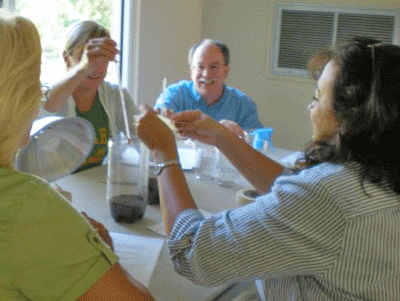 | | Dr. Mark Bourassa works with teachers at a summer 2011 workshop. |
The Coalition for Science Literacy at USF and COAPS are working on a three-year project funded by NASA's Global Climate Change Education program. The overall project goal is to increase teacher content knowledge in global climate change and provide training to enable teachers to stimulate students' interest in and learning about climate change. Teachers in the program are gaining in-depth science background in climate change and learning to use resources available through NASA and elsewhere to incorporate global climate change education in the classroom. The project has launched two years of sustained professional development (PD) for middle-school science teachers, beginning with a cohort of 18 teachers selected from the Hillsborough County schools. Plans are being developed for continuing the program in a wide range of school districts through a teach-the-teacher and coaching model. This is an ongoing program throughout the school year to maximize teachers' ability to apply their new learning in the classroom. Teachers participate in face-to-face workshops, ongoing coaching, and online interactive training and communication throughout the academic year. Climate scientists and educators provide the training and online communications. From COAPS, Dr. Mark Bourassa, Mr. Shawn Smith, Ms. Kathy Fearon, and Ms. Rachel Weihs are participating.
|
|
Aiding conservation and management of Florida's biodiversity
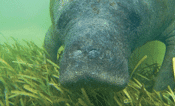 COAPS scientists Dr. Vasu Misra and Dr. Lydia Stefanova are part of a US Geological Survey (USGS) project titled "A Land of Flowers on a Latitude of Deserts: Aiding Conservation and Management of Florida's Biodiversity." The project is featured in a new USGS fact sheet. COAPS scientists Dr. Vasu Misra and Dr. Lydia Stefanova are part of a US Geological Survey (USGS) project titled "A Land of Flowers on a Latitude of Deserts: Aiding Conservation and Management of Florida's Biodiversity." The project is featured in a new USGS fact sheet. |
|
COAPS hosts Deep-C kick-off meeting
|
|
2-day climate event draws experts from state and nation
|
|
Dr. Mark Powell elected AMS fellow
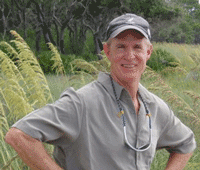 Dr. Mark Powell, a NOAA hurricane scientist stationed at COAPS, has been elected a Fellow of the American Meteorological Society (AMS). AMS Fellows are chosen annually in acknowledgment of their outstanding long-term contributions to the atmospheric sciences. Read the full announcement. Dr. Mark Powell, a NOAA hurricane scientist stationed at COAPS, has been elected a Fellow of the American Meteorological Society (AMS). AMS Fellows are chosen annually in acknowledgment of their outstanding long-term contributions to the atmospheric sciences. Read the full announcement. |
|
COAPS student Josh Cossuth receives grant to predict tropical cyclones
COAPS PhD student Josh Cossuth is a co-investigator on a new 2-year grant from the NOAA Joint Hurricane Testbed project. In collaboration with researchers from the University of Miami, NOAA, and Colorado State University, Josh will be working on the development of a probabilistic tropical cyclone genesis prediction scheme. The first year funding for this project is $100,450. |
|
Q & A with COAPS alum Michael Lowry of the National Hurricane Center
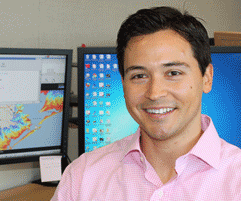 The NOAA National Hurricane Center featured COAPS Alumnus Michael Lowry in its November staff profile. In the interview, Mr. Lowry acknowledges the early guidance he received from COAPS professor emeritus Dr. James O'Brien. Read the full interview here. |
|
|
|
|
About COAPS
The Florida State University Center for Ocean-Atmospheric Prediction Studies (COAPS) is a center of excellence performing interdisciplinary research in ocean-atmosphere-land-ice interactions to increase our understanding of the physical, social, and economic consequences of climate variability. COAPS scientists and students come from a wide range of disciplines, including meteorology, physical oceanography, statistics, and the computer and information sciences.
|
|
|
|
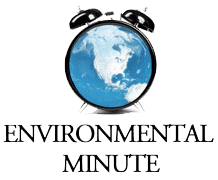
The natural world explained in 1-minute segments by scientists from FSU. Airing Mondays and Wednesdays at 10:04am on 88.9 WFSU-FM. |
|